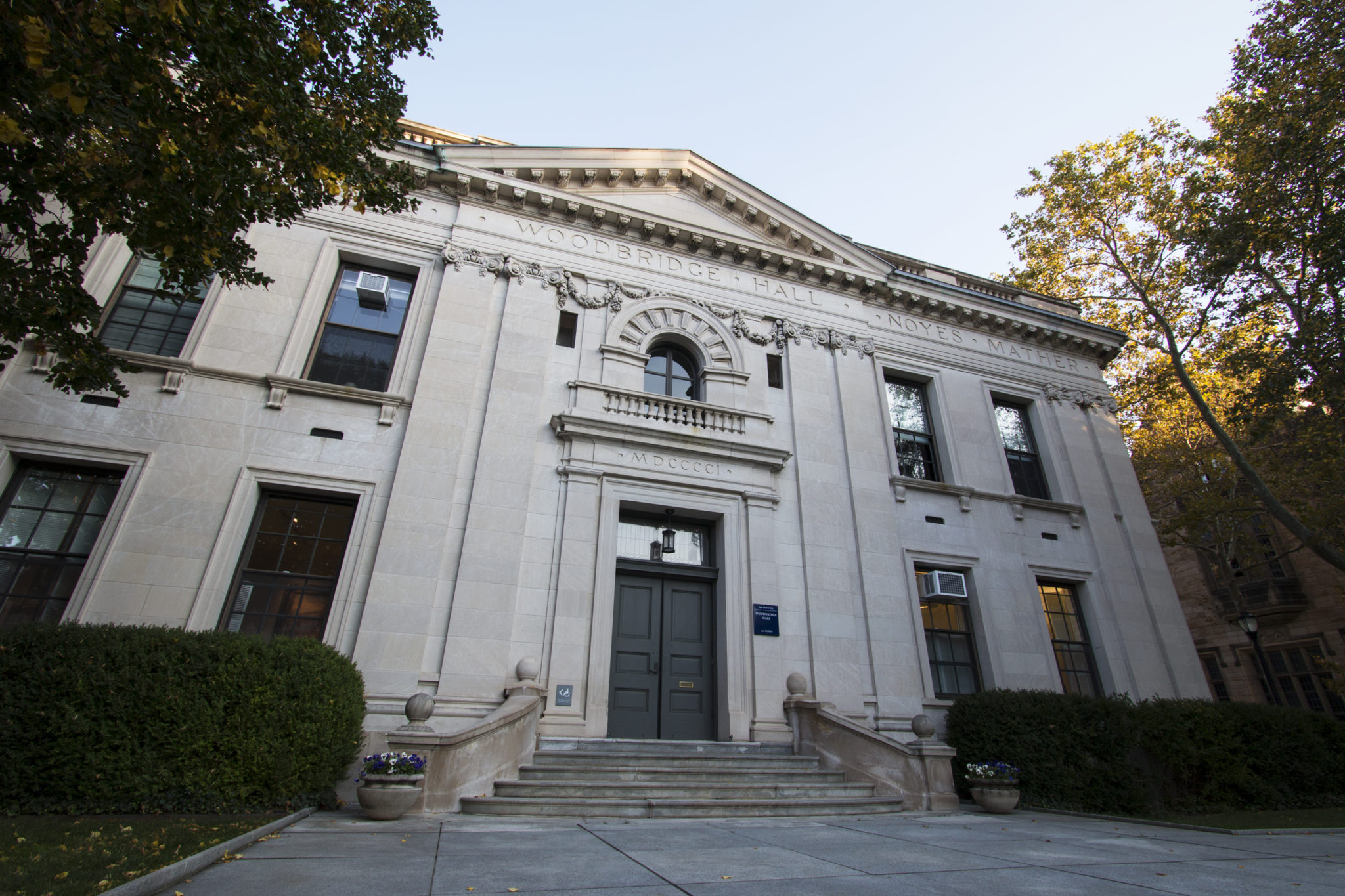
Yale has streamlined its preferred first name policy, Secretary and Vice President for Student Life Kimberly Goff-Crews announced in an email to the student body Tuesday, a move that has been welcomed by LGBTQ activists as a step toward greater gender inclusivity on campus.
The new policy allows students to alter their first name on various official Yale documents, email addresses, student identification cards and online directories by completing a form on the Student Information Systems website, which replaces an older process that required significant administrative work. The decision to streamline the preferred first name process was helped along by the Office of LGBTQ Resources and has vindicated several years of efforts from Yale’s transgender and gender-queer communities.
“This is something that I think people have been talking about for many, many years,” said Maria Trumpler, the director of the Office of LGBTQ Resources. “Whether it’s because they use a nickname or a middle name or an American name or they’re using a name of a different gender, it’s all extremely easy.”
Students and administrators alike noted that the old system was clunky and required an unwieldy amount of both digital and physical paperwork that proved obstructive to many students. The ability to change one’s name on an ID card, however, is a brand new option.
Currently roughly 30 percent of Yale students report using preferred first names on Yale forms, Trumpler said. The U.S. Department of Education provided guidance to Yale on this issue six months ago, and Trumpler said her office has been recommending this change to the Yale administration for five to six years.
Many Yale students arrive on campus from public school systems — including Connecticut’s K-12 school system — with preferred first name policies, and are shocked to find Yale lacking similar practices, Trumpler said, adding that she is glad Yale has come around to what she described as a “basic best practice for inclusion of transgender and gender-queer students in colleges.”
Yale students on the gender identity spectrum have long decried the awkwardness and anxiety of social introductions during the first days of class. Students who identify as transgender welcomed the change as a positive addition to their life at Yale.
“At worst, it’s toxic or harmful,” said Isaac Amend ’17, a staff columnist for the News. “You’re taking a political science class with an old white guy as professor, you don’t want to have to explain being transgendered; you just want to take the class.”
Representatives from the transgender group the LGBTQ Co-Op applauded the role of resources like Trans@Yale and the Office of LGBTQ Resources in helping students like Amend avoid burdensome social situations. Laurence Bashford ’18, the 2017 coordinator of the LGBTQ Co-Op, noted that although Yale has come around to permitting preferred first names slower than most Ivy League schools, he does not blame Yale’s culture so much as the University’s slow-moving bureaucracy for the delay.
Abuse of the preferred first name system has also become a topic of conversation following its introduction into the Yale online systems.
An image of the official Yale Facebook profile of Karl Notturno ’17 — who changed his preferred first name to “God Emperor” using the new system — was posted to the Facebook group “Overheard at Yale” on Thursday and has attracted criticism from students who see his actions as mocking a significant resource for transgender students.
“It starts becoming very, very difficult to know when someone is actually doing it in good faith, or when someone like me decides to go screw around with it,” Notturno said. “I think that’s the difficulty you get into with almost any of these policies.”
Amend said Notturno’s name change made him want to “bang my head against the wall,” but he acknowledged that people willing to trivialize preferred first names will always exist in the world.
Trumpler said she hopes Notturno’s jest will actually show him the importance of name usage in everyday social interactions.
“He’s free to do that,” Trumpler said. “It might be that actually living with ‘God Emperor’ as what his professors see, what is on his [Yale] Facebook, what his dean sees, might actually help him see that it matters what name you use to interact with people.”
Amend said that goals on the horizon for transgender and gender-queer students include improving Yale’s health care coverage for transgender women and relaxing gender conversion therapy screening procedures at Yale Health.
The Office of LGBTQ Resources, founded in 2009, is located at Suite 124 in Swing Space.







